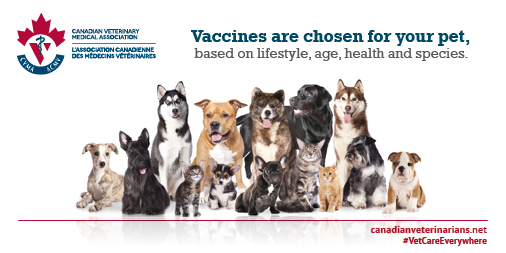
What vaccines does your dog really need?
This is a question commonly asked by dog parents everywhere. Dog lovers want to do the right thing, protect their dog but at the same time minimize risk of problems to their dog and avoid unnecessary expenses.
YES vaccines are very safe. Vaccines have a extremely low rate of reactions in people and animals, but there are problems. Vaccines have saved many lives, however there is still caution, fear and scrutiny about dog vaccinations. From lethargy, to epilepsy, blood disorders, cancer, and even death, vaccines have been blamed (sometimes fairly, other times unfairly) for a number of negative side effects. Now more than ever, the need to annually vaccinate your pet is being questioned by pet owners and veterinarians alike. Because there are issues with vaccine safety, it is ideal to give only what a dog really needs. We do not believe in OVER vaccinating, BUT we see dogs suffering and dying from being NOT properly vaccinated on a daily basis. (Think about it like this – Are cars safe? Yes, but we still have people injured and killed from car accidents. Once something safer and better comes along society will switch to using it.)
What Vaccines do Dogs Really Need?
This depends entirely upon the age, the location, the use and other risk factors of a dog. These are the recommendations that we think and use on how we vaccinate our own dogs.
All puppies should receive a complete full series of vaccines beginning at 6 to 8 weeks of age and repeated every 3 to 4 weeks until they are 16 to 20 weeks of age to protect them against all the common diseases. Unvaccinated adult dogs should also receive two full sets of vaccines spaced 3 to 4 weeks apart. Adult dogs should then receive vaccines as required by the label or by law (rabies) and other vaccines at least every 3 years.
Vaccine Recommendations
- Puppies – Puppies should receive immunity against some diseases through their mothers first milk or colostrum but this disappears during the first few months of their life. To protect puppies during this critical time, a well-researched approach is taken: A series of vaccines is given every 3 to 4 weeks until the chance of contracting an infectious disease is very low. The typical vaccine is a “combination” that protects against canine distemper virus, canine adenovirus, parainfluenza, and canine parvovirus (the four viruses are commonly abbreviated DHPP). Many veterinarians also recommend incorporating leptospirosis in the vaccination series (this combination is abbreviated DHLPP). Rabies vaccines are given between 16 and 26 weeks of age in most states (governed by law).
- Dogs between 20 weeks and 2 years of ageIt is typical to booster the puppy shots in young adult dogs to ensure adequate lifelong immunity against deadly viral diseases. Your veterinarian will likely “booster” your dog to protect against canine distemper virus, canine adenovirus, parainfluenza, and canine parvovirus (the four viruses are commonly abbreviated DHPP). Many veterinarians also recommend incorporating leptospirosis in the vaccination series (the 5 components are abbreviated DHLPP).Many dogs are also immunized against bacterial infections (e.g. bordetella and leptospirosis). The immunization for these diseases typically do not persist for more than a year making yearly (and occasionally more frequent) booster vaccines advisable.The bordetella protects against “kennel cough” and is often a requirement of boarding facilities. Bordetella is also recommended for dogs that attend dog parks, conformation shows or agility competitions.There is currently a vaccination available for canine influenza virus. The vaccine is recommended for dogs “at risk”. Dogs that frequently interact with other dogs, participate in activities with other dogs or are boarded are considered at risk and can benefit from vaccination.The rabies vaccines should be given as recommended by local law. Newer vaccines effective against specific forms of the bacteria leptospirosis may be important in some areas.
- Adult dogs (over 2 years of age)Annual revaccination (boosters) is recommended for the first year after the “puppy vaccines”; thereafter, you should discuss the benefits and risks of annual vaccination with your vet.In the past, the DHLP (distemper, hepatitis, leptospirosis, parvovirus) vaccine was typically given each year. These recommendations are changing. The American Animal Hospital Association (AAHA) came out with new guidelines in 2006 that suggests that adult dog vaccines boosters may be adequate if given every 3 years. Specific vaccine requirements for individual dogs should be discussed with your veterinarian.The most appropriate vaccination program for your pet should be followed.Again, if the risk of kennel cough or canine influenza virus is great, a vaccine against bordetella and canine flu is recommended. Both vaccines need to be given twice initially then each year. You and your veterinarian should assess whether it is required.The rabies vaccine should be given as recommended by local law. Newer vaccines effective against specific forms of the bacteria leptospirosis may be important in some areas. The need for the vaccine should be determined based on the area of the country your dog lives in and his or her life-style. If given, they should be administered once to twice a year.Other vaccinations that are sometimes given by your veterinarian include coronavirus, Lyme and giardia. These are not routinely given to every animal, and their use should be discussed with your veterinarian. The American Animal Hospital Association (AAHA) came out with new guidelines in 2006 that suggests that coronavirus and giardia vaccines are not recommended for dogs at any age. The Borreliosis/Lyme disease vaccine is recommended for dogs that live in an endemic area where risk of exposure to the tick vector is high or dogs that travel to endemic areas.Another option to determine what vaccines your dog needs is to do vaccine titers.If your adult dog has an adverse reaction to the vaccine (fever, vomiting, shaking, facial swelling or hives) discuss the risk of annual revaccination with your veterinarian.

Click here to link to AAHA’s Canine Vaccination Guidelines
Link to Register Your SOS RABIES Tags
Should You do Vaccine Titers?
A vaccine titer is a blood test that determines the presence of antibodies that develop in response to the vaccine. Since varying amounts of antibodies can be detected in different animals, titers are expressed in terms of ratios. Adequate levels of vaccine titers indicate that the pet does not need a booster vaccination at that time. Low titers indicate that vaccination will be necessary to provide immune protection. This is a method to determine if a dog needs vaccines.
Historically, the cost of doing this test is far greater than giving the vaccine and therefore most veterinarians and pet owners did not do them. However, with the increased risk of vaccine complications, this is a reasonable option. For dogs who are sensitive to vaccines, pet parents that are simply concerned about repetitive vaccine safety, and veterinarians wanting to make sure dogs are protected against deadly and preventable diseases, vaccine titers offer a middle ground to satisfy all parties without compromising the safety and health of your pet.


